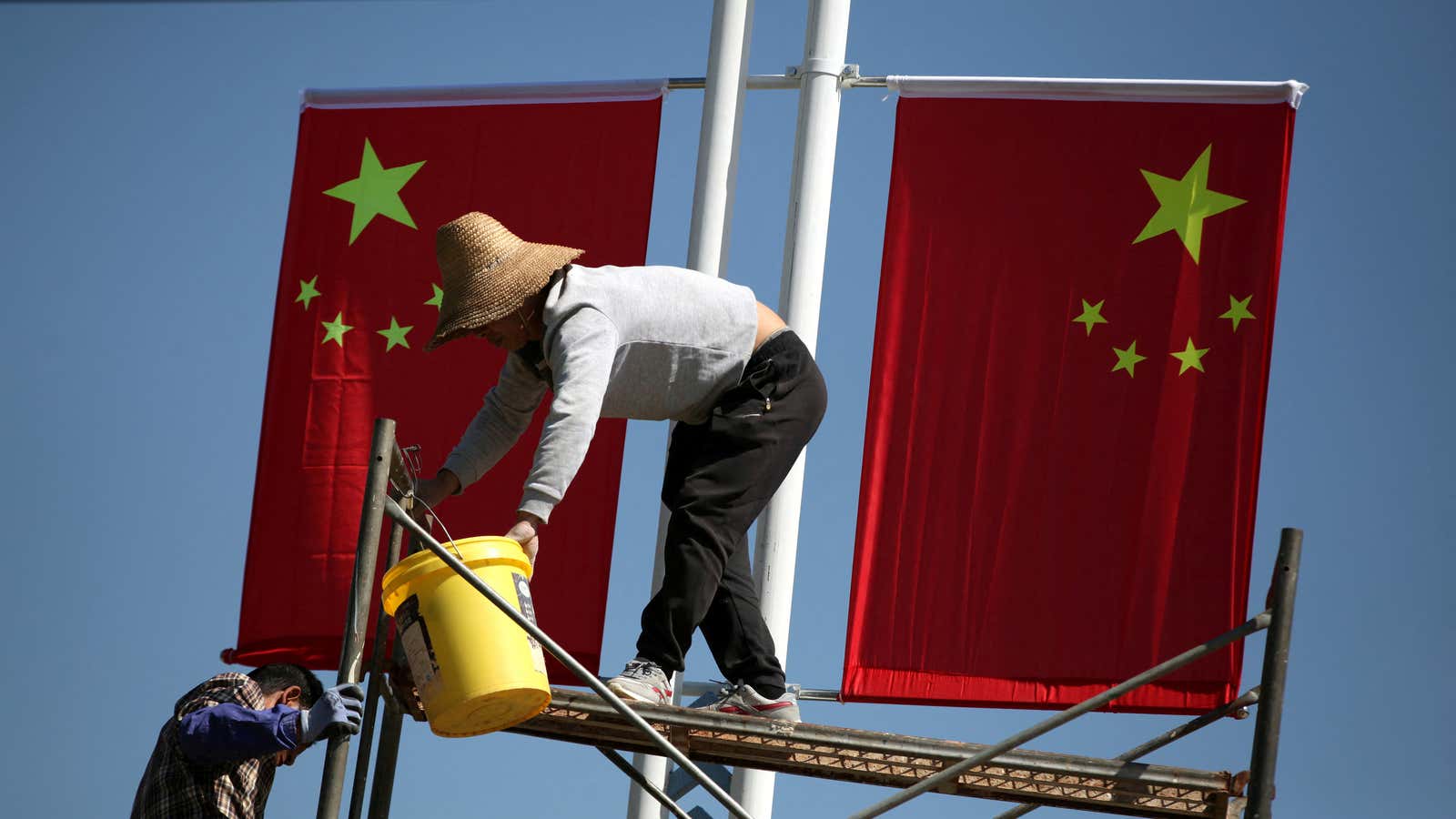China was originally scheduled to release its third-quarter GDP data tomorrow (Oct. 18). But in an unusual move, the Chinese National Bureau of Statistics has delayed the publication date (link in Chinese), with no new date announced nor reason given.
Economists polled by Reuters had forecast China’s economy to have grown 3.4% in the July to September period from a year earlier, while economists surveyed by Nikkei predicted a growth rate of 3.2%. Both would be an improvement from the 0.4% pace in the second quarter that was marked by widespread pandemic lockdowns and a worsening real estate slump.
The indefinite postponement of the latest GDP data and other economic indicators could suggest that the numbers are far less than rosy. The original publication date would have come at a sensitive time: only two days after Chinese leader Xi Jinping gave a rousing and confident address at the opening of the week-long 20th Communist Party Congress.
“China delaying its Q3 GDP release says all you need to know about the status of the economy...,” noted Nick Marro, global trade lead at the Economist Intelligence Unit.
Also delayed were China’s home prices for September, originally set for publication on Wednesday (Oct. 19) (link in Chinese).
The unexplained delay is all the more surprising because the National Reform and Development Commission, China’s top economic planning agency, had just hours before announced that growth in the domestic economy had“rebounded significantly” in the third quarter and remained “outstanding” relative to the global economy.
The official target for GDP growth this year, set in March, is “around 5.5%.” By July, officials had reportedly begun softening that goal, saying it’s a guidance rather than a hard target.
It’s unlikely that China will be anywhere close to that target.
To illustrate just how dire things look Robin Brooks, chief economist at the Institute of International Finance, recently made a quick calculation: if China manages zero GDP growth in its third and fourth quarters, it would be in some economically unenviable company; only Russia, Sri Lanka, and Ukraine would have seen weaker annual growth for 2022.
